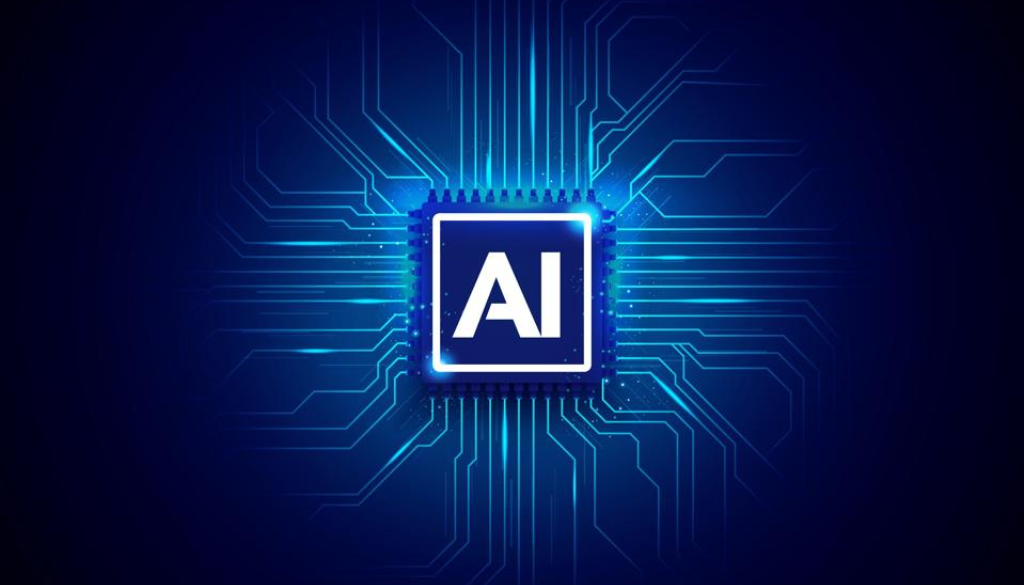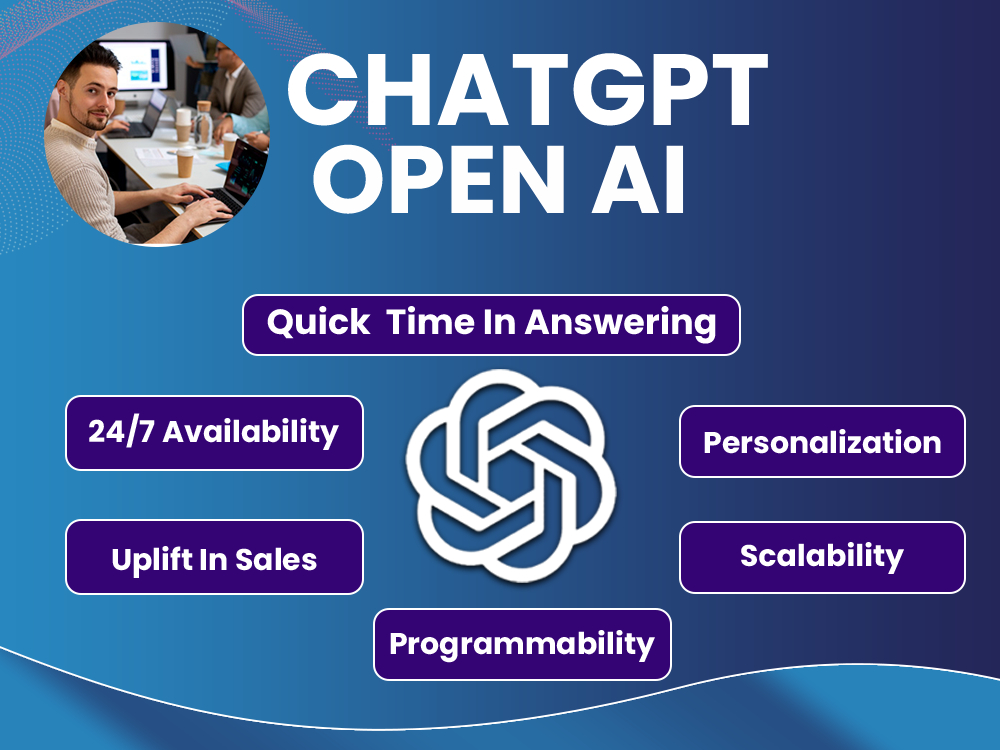Artificial Intelligence (AI) has ushered in a transformative era in the field of AI in education, revolutionizing the way students learn and teachers instruct. This technological marvel has penetrated classrooms across the globe, promising enhanced educational experiences and improved outcomes. One of the most remarkable contributions of AI to education lies in its ability to personalize learning. Through sophisticated algorithms and data analysis, AI systems can adapt to individual student’s strengths, weaknesses, and learning pace, creating tailor-made lesson plans and activities that cater to each student’s unique needs. This not only fosters a deeper understanding of the subject matter but also boosts student engagement and motivation.

AI in education.
Table of Contents
1. AI in education Learning Experiences
Incorporating AI in education has revolutionized the way students learn. AI algorithms analyze individual learning patterns and preferences to create tailor-made learning paths. This personalized approach enhances comprehension, engagement, and overall knowledge retention.
Personalized learning experiences have emerged as a transformative approach in education, catering to the unique needs, preferences, and pace of individual learners. This innovative educational model shifts away from the traditional one-size-fits-all approach and instead focuses on tailoring learning pathways to optimize student engagement and comprehension.
By leveraging technology, educators can analyze students’ strengths, weaknesses, and learning styles, enabling them to curate customized content, assignments, and assessments. This fosters a deeper connection between learners and subject matter, as it capitalizes on their intrinsic motivations and interests. Moreover, personalized learning experiences encourage critical thinking, problem-solving, and self-directed learning skills, empowering students to take ownership of their education.
As the educational landscape continues to evolve, personalized learning stands as a promising avenue to unlock the full potential of every learner, paving the way for a more inclusive, adaptive, and effective approach to knowledge dissemination and acquisition.
Implementation: Collaborate with AI developers to create a platform that collects and processes student data, such as learning style, pace, and preferences. Leverage machine learning algorithms to curate customized lessons, assignments, and assessments for each student.
2. Smart Content Creation and Assessment
AI-powered tools have streamlined content creation and assessment processes. Teachers can now develop interactive and dynamic content that caters to diverse learning styles. Additionally, AI-driven assessment tools provide instant feedback, reducing teachers’ workload and enabling timely intervention.
Smart Content Creation and Assessment has revolutionized the way we produce and evaluate various forms of digital content. In today’s rapidly evolving technological landscape, the integration of artificial intelligence and machine learning algorithms has led to a remarkable enhancement in content creation processes. These smart systems analyze vast amounts of data, enabling content creators to make informed decisions about their target audience, preferences, and trends. By harnessing these insights, creators can craft highly personalized and engaging content that resonates with their intended viewership.
Moreover, the advent of smart assessment tools has streamlined the evaluation of content quality and effectiveness. These tools utilize advanced algorithms to assess factors such as readability, grammar accuracy, and overall coherence, thereby ensuring that the content meets high standards of professionalism. Additionally, smart assessment technologies facilitate real-time feedback, allowing creators to refine and improve their work iteratively. This dynamic process not only enhances the quality of content but also accelerates the learning curve for aspiring content creators.
In conclusion, Smart Content Creation and Assessment represent a significant leap forward in the realm of digital content production. By leveraging cutting-edge technologies, content creators can optimize their creative processes and deliver impactful material that resonates with their audience. The integration of smart assessment tools further contributes to this evolution by ensuring that content is not only well-crafted but also aligned with the expectations of modern audiences. As technology continues to advance, the potential for even more sophisticated and intuitive smart content creation and assessment tools is both exciting and promising.
Implementation: Integrate AI-powered content creation tools into the curriculum development process. Utilize natural language processing to assess students’ responses, enabling quick evaluation and targeted feedback.
3. Administrative Efficiency
AI in education has transformed administrative tasks in educational institutions. Chatbots handle routine queries, enrollment processes are automated, and scheduling becomes optimized. This efficiency allows educators and administrators to focus more on teaching and student support.
Administrative efficiency is a crucial component of effective governance and organizational management. It pertains to the streamlined and effective functioning of administrative processes, systems, and structures within an institution or entity. By optimizing administrative efficiency, organizations can minimize redundancies, reduce operational costs, and enhance overall productivity.
This involves strategic allocation of resources, implementation of technology-driven solutions, and continuous process improvement. When administrative functions are efficient, they enable better decision-making, faster response times, and improved service delivery to stakeholders.
AI in education, a focus on administrative efficiency contributes to a more agile and adaptable organization that can navigate challenges and seize opportunities in an ever-evolving landscape. As such, cultivating administrative efficiency remains a cornerstone for achieving sustainable growth, innovation, and success across diverse sectors and industries.
Implementation: Implement AI-driven chatbots on the institution’s website to handle inquiries. Integrate AI tools for student enrollment and course registration, and utilize AI algorithms for timetable optimization.
4. Early Identification of Learning Challenges
AI tools help identify learning difficulties at an early stage, enabling timely interventions. Through continuous monitoring of students’ progress, AI algorithms can detect patterns that signal potential challenges. Educators can then provide targeted support and resources.
Early identification of learning challenges is a crucial aspect of ensuring every student’s academic success and well-being. By promptly recognizing and addressing learning difficulties, educators and parents can provide targeted support and interventions that can make a significant difference in a child’s educational journey. This process involves closely monitoring a student’s progress, behavior, and engagement in the learning process.
Through regular assessments, observations, and open communication between teachers, parents, and other professionals, potential barriers to learning can be identified and addressed proactively. Early intervention not only helps prevent further academic setbacks but also fosters a sense of empowerment and confidence in students as they receive the tailored assistance they need.
Ultimately, prioritizing the early identification of learning challenges lays the foundation for a more inclusive and equitable education system, where each child is given the opportunity to reach their full potential.
Implementation: Develop a system that tracks student performance and behavior over time. Utilize machine learning algorithms to detect anomalies or trends that may indicate learning challenges, and alert teachers for proactive assistance.
5. AI Ethics and Human Involvement
While AI offers numerous benefits, ethical considerations are paramount. Balancing technology with human interaction remains essential. Educators play a pivotal role in guiding students on the appropriate use of AI, fostering critical thinking, and addressing potential biases.
AI Ethics and Human Involvement are intertwined in a complex and crucial relationship that shapes the future of technology and its impact on society. As artificial intelligence continues to advance, questions about the ethical implications of AI systems become increasingly pressing. Balancing technological progress with moral considerations requires active human engagement throughout the development, deployment, and regulation of AI technologies.
Human involvement is essential to ensure that AI systems are designed and trained in ways that align with societal values, respect human rights, and avoid biases and discrimination. Ethical oversight and accountability mechanisms should be established to prevent unintended consequences and ensure transparency in AI decision-making processes.
Additionally, human experts play a vital role in defining the boundaries of AI applications, setting guidelines for AI behavior, and addressing potential risks, ultimately guiding AI to enhance human well-being and create a more equitable and inclusive future.
Implementation: Incorporate AI ethics education within the curriculum. Encourage discussions around AI’s impact on society, privacy, and bias. Empower educators to guide students in making ethical decisions when using AI tools.
Conclusion
In the rapidly evolving landscape of education, AI has emerged as a transformative force. By personalizing learning experiences, streamlining administrative tasks, and identifying learning challenges early, AI empowers educators to provide a more effective and inclusive education. However, the human touch remains crucial in ensuring ethical AI integration and nurturing well-rounded individuals prepared for the challenges of the future. Embracing AI while upholding ethical values will shape a brighter and more equitable future for education.
Future of AI | Future of Artificial Intelligence 2023 | AI Technology for Beginners | Simplilearn
Furthermore, AI-powered educational tools offer educators invaluable support by automating administrative tasks, such as grading assignments and managing student records. This allows teachers to allocate more time to direct interaction with students, providing personalized guidance and mentorship. AI can also facilitate collaborative learning by connecting students from diverse geographical locations through virtual platforms, enabling them to work together on projects and share insights, thereby broadening their perspectives.
However, the integration of AI in education is not without challenges. Concerns about data privacy and security are paramount, as AI systems collect and process sensitive student information. Striking a balance between the benefits of personalized learning and the protection of students’ privacy is a critical consideration. Additionally, the potential for AI to perpetuate inequalities must be addressed. Access to AI-powered resources and tools should be equitable across different socioeconomic backgrounds to ensure that all students have an equal opportunity to benefit from this technological advancement.
In conclusion, AI’s integration into education has the potential to reshape traditional learning models, offering personalized experiences that cater to individual needs, enhancing teacher efficiency, and fostering global collaboration. As educators, policymakers, and stakeholders navigate the complexities of this evolving landscape, it is imperative to harness the power of AI in education responsibly, addressing challenges while maximizing its benefits to create a more inclusive and effective learning environment for generations to come.


